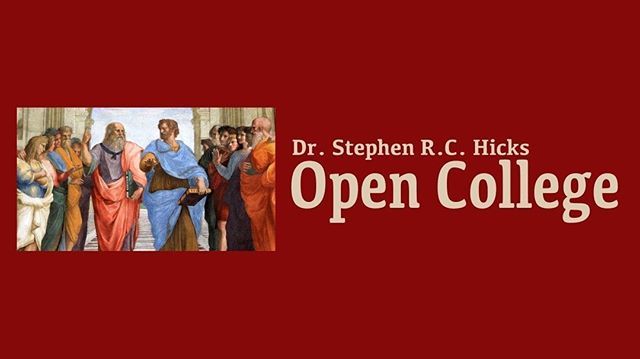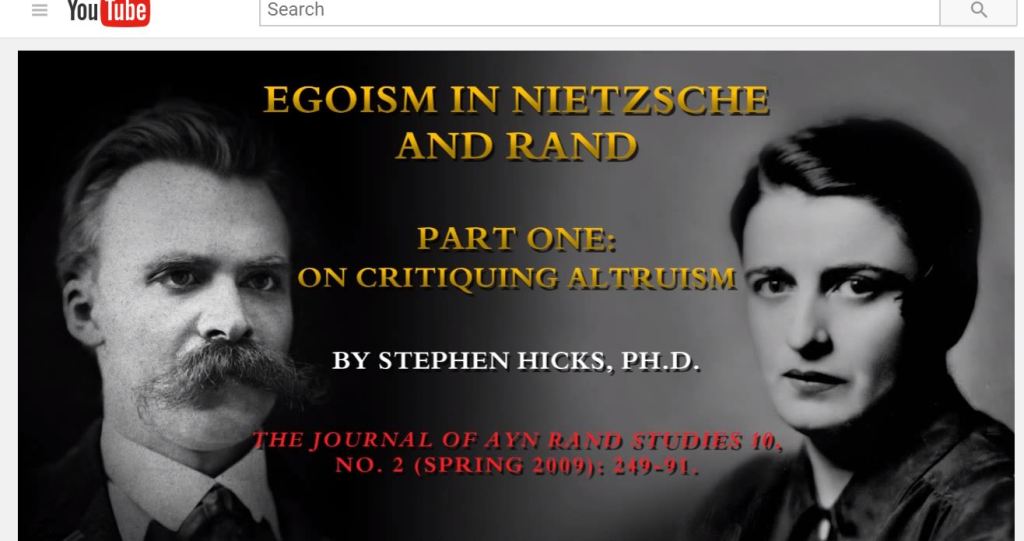*Egoism in Nietzsche and Rand* [audio-book version]
Audio version of my 42-page journal article “Egoism in Nietzsche and Rand.” Table of Contents: Part One: On Critiquing Altruism [MP3] [YouTube] [64 minutes] Three Nietzsches and Ayn RandSome Intellectuals on Nietzsche and RandEgoism, altruism, and “selfishness”A Nietzschean sketch: * God is dead * Nihilism’s symptoms * Two bio-psychological types * Psychology and morality * […]
*Egoism in Nietzsche and Rand* [audio-book version] Read More »

